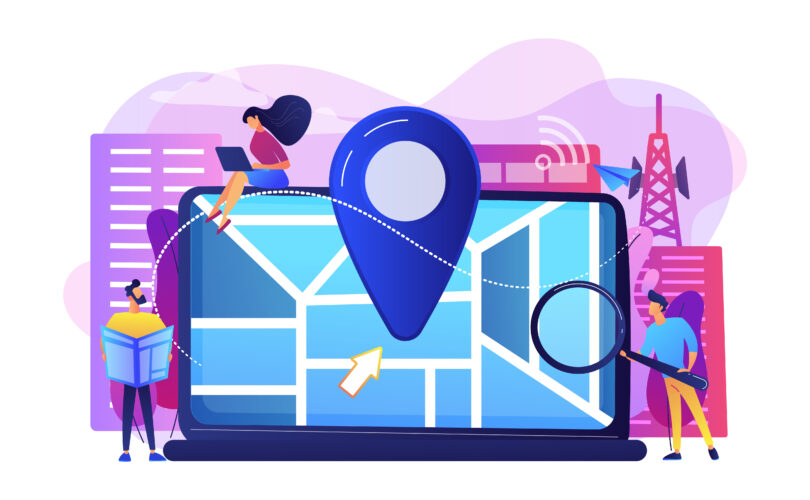
Why local SEO is important for Hospitals
Health care is a highly competitive industry with many regional hospitals and clinics competing for patients. The marketing departments of hospitals and their regional health systems work hard to outrank their competition, especially for highly competitive keywords such as “emergency room near me.”
Local SEO can help hospitals rank higher on Google and appear in the regional map pack, which will then drive more traffic to the hospital’s site. Ranking high on regional map packs also helps build trust with patients. That’s why health care professionals should be working hard on their local SEO strategies as part of their overall digital marketing plans.
Local SEO is important for hospitals because it helps them rank in local
Searches and in the Google 3-pack. Because of the way people search for health care,
- You’re in the Google 3-pack. Because of the way people search for health care, it’s important that you show up on page one of a Google search results page. The local pack (which is meant to be an accurate reflection of your business) can be found on the right side of the screen and includes three listings: one at the top, two below that. It also allows users to click “more listings” if they want more options.
- Local rankings don’t mean much until they’re confirmed by reviews and location information (like latitude/longitude coordinates). If you want your site to appear in this section of Google’s search results pages but aren’t seeing enough traffic yet, consider encouraging clients who have been treated at your hospital to leave honest feedback on review sites like Yelp or Vitals so that they can help boost these numbers!
Both ranking high in local search results as well as ranking in Google’s 3-pack are
Local search result pages are incredibly valuable, because they’re the first thing that many searchers see when looking for a business. It might seem like there’s no reason to care about local SEO if you’re a hospital and not a restaurant or retail store. But even though you don’t have customers walking in off the street every day, local searchers are still discovering your website and calling on you for services. And when they do, it’s important that they can find out as much as possible about your location and hours right away—which means ranking high in local search results as well as ranking in Google’s 3-pack (the box that appears at the top of mobile searches).
The good news is that both of these things are easier than ever before! You don’t need dozens upon dozens of links from other websites pointing back to yours; instead, all you need is one great piece of content linking back from each page on your site so that Google knows where those pages belong geographically.
For hospitals, the importance of ranking high on Google Maps and in other local directories can’t be overstated. People looking for health care often use search engines to find nearby medical providers, and when they do so, they’re likely looking for information about specific hospitals or doctors: what they offer (services), their address and phone number, hours of operation — even reviews from patients.
Since these are all factors Google uses to determine where a business should appear within its own listing results (as well as on third-party platforms like Yelp), it’s important for healthcare facilities not only to have a robust online presence but also one that accurately reflects their services and location.
Health care is a competitive industry. The marketing departments of hospitals and their regional health systems work hard to outrank their competition,

Local SEO helps local businesses appear in Google’s map pack, which is a list of search results that show up on the right side of Google’s organic SERPs (search engine results pages). Not only does it help them rank higher on Google, but it also gives them more visibility within their region so that they’re visible to people who need medical care nearby.
This is especially important when it comes to hospitals since people will often seek out information about local healthcare providers before making an appointment with one of them. If your hospital isn’t appearing among these listings because you haven’t done enough SEO outreach yet or if you aren’t ranking well enough yet even after all the outreach efforts that have been made thus far then this could mean lost patients/customers who were looking specifically for some kind of medical treatment but didn’t find what they wanted because there weren’t any results listed!
Specially for highly competitive keywords such as “emergency room near me.”

Search engines use local search queries to determine the relevancy of a page or website. In other words, when a user searches for terms like “emergency room near me” on Google’s search engine, Google assumes that they are looking for content related to their location (and not just anything about emergency rooms). This is why it’s important to optimize your hospital website with specific pages that target highly relevant local searches like “emergency room near me.”
Health care is a highly competitive industry. In order to stand out from the competition, hospitals need to do more than just implement traditional approaches to online
One of the most important considerations for any healthcare provider is how to standout from the competition. As a highly competitive industry, hospitals need to do more than just implement traditional approaches to online marketing if they want to stand out from the competition.
Local SEO is an approach that helps health care providers rank higher on Google, appear in local searches, and rank high on regional map pack results. Local SEO also allows hospitals to be found by individuals who are searching for medical services at their local area.
Marketing. They need to have a competitive edge in all aspects of marketing, including local SEO in order to rank in local search results and rank well in the Google 3-pack
- Trust. Local SEO builds trust with patients who are looking for a hospital nearby. While online reviews may not always be accurate, they can help patients understand what services a hospital provides and what types of people are satisfied with their care at that location.
Local SEO can help hospitals rank higher on Google and appear in the regional map pack, which will then drive more traffic to the hospital’s site. Ranking high on regional map packs
Local SEO can help hospitals rank higher on Google and appear in the regional map pack, which will then drive more traffic to the hospital’s site. Ranking high on regional map packs is a sign that your hospital has an established local presence, and it is something that many patients look for when searching for medical care. Seeing your hospital listed here is also a sign of trustworthiness, as this section of Google Maps only features listings from sources deemed trustworthy by Google’s algorithms.
Also helps build trust with patients. That’s why health care professionals should be working hard on their local SEO strategies as part of their overall digital marketing plans.
Local SEO is important for hospitals because it helps them rank in local search results.
Local SEO will also help build trust with patients, which is why health care professionals should be working hard on their local SEO strategies as part of their overall digital marketing plans.
In conclusion, local SEO is an important part of the digital marketing strategy for hospitals and their regional health systems. It helps them rank higher in local search results as well as rank well in Google’s 3-pack, which will then drive more traffic to the hospital’s site. Ranking high on regional map packs also helps build trust with patients. That’s why health care professionals should be working hard on their local SEO strategies as part of their overall digital marketing plans



